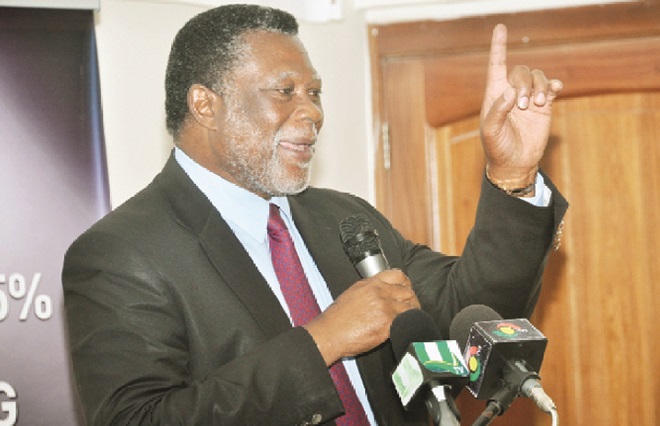
60 Companies receive licences to provide solar systems
The Energy Commission has issued licenses to over 60 companies who are engaged in the solar systems business, following the huge market for solar home systems in the country.
This huge market has been created as a result of the government’s policy of building 200,000 rooftop solar photovoltaic (PV) across the country.
Interests in other renewable energy portfolios have also been rising rapidly with about 12 licenses issued to companies for wind power generation, five licenses for small hydropower generation and about 10 licenses for waste-to-power projects.
This was disclosed by the Chairman of the Energy Commission, Dr Kwame Ampofo, at the opening of the maiden Ghana International Power, Electrical, and Electronics Expo (Powerelec) in Accra.
He said these developments were having the expected ripple economic effect with the emergence of opportunities for the solar manufacturing and renewable energy sectors.
Work commences on 200,000 solar PVs
Dr Ampofo also noted that it had commenced the implementation of its 200, 000 rooftop solar photovoltaic (PV) programme across the country.
This is expected to achieve a 200 Mega Watts peak load relief on the national electricity grid through solar PV electrification.
As part of the preparatory activities, the Energy Commission has implemented some pilot projects to ascertain the technical feasibility and viability of the initiative and a number of rooftop solar systems of different capacities have already been installed under different scenarios including the use of Net Meters which will enable the beneficiaries to sell electricity generated from solar systems back to the distribution companies who will credit the beneficiary with the supply.
Under the programme, a capital subsidy will be given to beneficiaries in two forms, as either: cash payment for solar panels component of the solar PV system; or the supply of actual solar panels after the beneficiary has purchased and installed the requisite Balance of System (BoS) components such as inverter, batteries, charge controllers, etc.
The maximum capacity of solar panels that will be granted each beneficiary under the programme shall be up to 500Watts.
Access to electricity in Africa
One of the Organisers of the Expo, Mr Jeen Johnson, said Africa currently had 147 Gig watts (GW) of installed capacity, a level comparable to the capacity China installs in one or two years.
He said the average per capita electricity consumption in sub-Saharan Africa (excluding South Africa) is just 153 kWh/year, making it the one-fourth of the consumption in India and just 6 per cent of the global average.
“Nearly 600 million people in Africa lack access to electricity. Electricity blackouts occur on a daily basis in many African countries. Faced with this situation, people and enterprises often have to rely on expensive diesel power generation to meet their electricity needs, costing some African economies between 1 per cent and 5 per cent of GDP annually,” he stated.
To meet its growing demand, he said Africa had an urgent need to raise the level of investment in its power sector, with the region requirements set for 250 GW of capacity between now and 2030.
He said comparing to the region’s average, Ghana was better off with over 70 per cent of the population having access to electricity.
He however cautioned that the current capacity still needed to doubled as the demand was growing over 12 per cent per annum.
He said Powerelec Ghana 2016 would therefore make alternative energy solutions the focus of the three days show.
Cost effective products
The Deputy Minister of Power, Mr John Jinapor for his part urged the companies exhibiting their products to focus on providing simpler, cost effective products that would make tremendous impact on the lives of Ghanaians.
He said the government had made lots of interventions and was still open to new products and it intended to diversify its sources of power to allow for more people to be taken off the national grid.